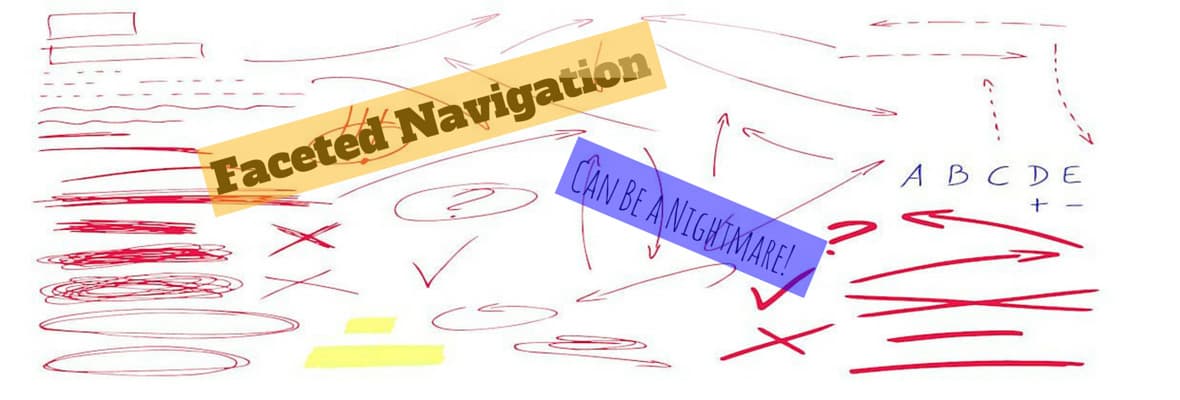

Eliminate Duplicate Content in Faceted Navigation with Ajax/JSON/JQuery
Page tags like rel=canonical and noindex are powerful, but each has limitations. In some cases, Ajax-based solutions are a better solution.
On-page SEO is the practice of optimizing individual web pages in order to rank higher and earn more relevant traffic in search engines. On-page refers to both the content and HTML source code of a page that can be optimized, as opposed to off-page SEO which refers to links and other external signals.
For those new to on-page SEO, we highly recommend reading our On-Page Ranking Factors. On-page SEO has changed over the years, so it's important to keep up with the latest practices. Below are the latest post about on-page SEO from the Moz Blog, and we have chosen our favorite resources to help you along your journey.
On-Page SEO : The Beginner's Guide to SEO: Everything you need to get started to optimize your pages.
On-Site SEO Learning Center : Our free on-site SEO learning hub. Here, we’ve gathered our top resources in one place.
More than Keywords: 7 Concepts of Advanced On-Page SEO : On-page SEO starts with keywords, but Google uses tons of advanced methods to determine content relevance.
Illustrated Guide to Advanced On-Page Topic Targeting for SEO : A simple framework for on-page topic targeting that produces satisfying content and makes optimizing easy.
What's changed in SEO? : Looking back at a popular Whiteboard Friday, let's see what's changed and what still remains relevant today in SEO.


Page tags like rel=canonical and noindex are powerful, but each has limitations. In some cases, Ajax-based solutions are a better solution.


Can learning about Inverse Document Frequency teach us to create better content? It can, and this article explains how.


For years, we've suggested a 155-character limit to meta descriptions. As long snippets appear more and more often, is it time to revise that rule?


In this post, Simon details a new content process designed to take advantage of the trend toward long-tail keywords by tying your content to more specific search opportunities.


Last year, Google introduced answers boxes scraped from the index. I didn't like one of mine, so I tried to change it. Months later, something finally happened.


Several months ago, Google announced a new sitelinks search box. Despite its strong adoption, until now we've had very little evidence to understand its effects. We implemented it to share with you the results. Here's what we found...

This is a story about Panda, customer service, and differentiating your store from others selling the same products. I'm going to use a real-live example that I suffered through about a month ago: I was looking for a replacement sink stopper for a bathroom sink. It did not go well.


The concepts of advanced on-page SEO are dizzying: LDA, co-occurrence, and entity salience. The question is "How can I easily incorporate these techniques into my content for higher rankings?" The truth is, you can create optimized pages that rank well without understanding complex algorithms.


As marketers, helping search engines understand what our content means is one of our most important tasks. Search engines can’t read pages like humans can, so we incorporate structure and clues as to what our content means. This post explores a series of on-page techniques that not only build upon one another, but can be combined in sophisticated ways.


With Panda, the devil isn't in the details, it's in the aggregate. Panda is a completely curable disease if we stop missing the forest for the trees.

The bane of the existence of all search marketers is old or incorrect information given to clients at any point in time. This is a call to educate with a look at those concepts that make us do a serious facepalm.


No one expects the Panda! Many of us were surprised when Google rolled out Panda 4.0 after telling us that it was essentially "baked into" the algorithm last year. After seeing many sites take breathtaking hits, what can we learn from their losses? What is the path to recovery?


Many SEOs limit their understanding of entity search to vague concepts of structured data, Schema.org and Freebase. They fall into the trap of thinking that the only way to participate in the entity SEO revolution is to markup your HTML with complex schema.org microdata. Let's explore why this isn't true.


Trying to do SEO for a website without full access to its CMS is like trying to win a sword fight with one hand tied behind your back. You can still use your weapon, but there is always going to be a limit to what you can do.